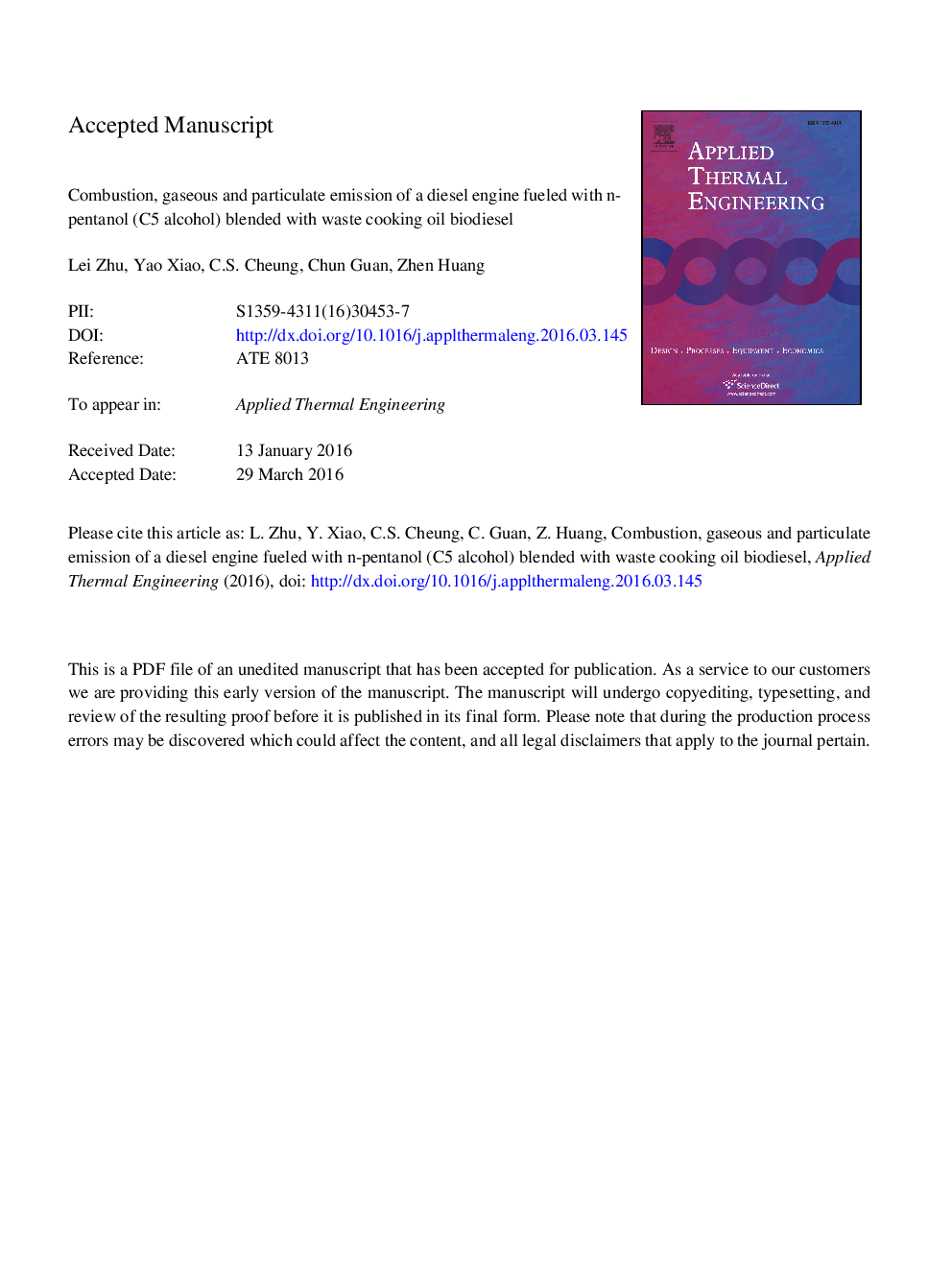| Article ID | Journal | Published Year | Pages | File Type |
|---|---|---|---|---|
| 7047851 | Applied Thermal Engineering | 2016 | 36 Pages |
Abstract
The combustion, gaseous and particulate emissions of a diesel engine fueled with biodiesel-pentanol (BP) blends were investigated under different engine loads. The results indicate that with the increased pentanol fraction, the start of combustion is delayed. All of the BP blends provide faster combustion than biodiesel and diesel fuel from CA10 to CA90. The faster combustion of BP blends leads to a higher BTE than that of biodiesel and diesel fuel in most cases. The particle mass and number concentrations are reduced by the addition of pentanol in biodiesel in most test conditions, due to the higher oxygen concentration for the fuel/air stoichiometry, longer ignition delay for fuel/air mixing, and lower viscosity for the improvement of atomization. The R(CO)ORâ² group in biodiesel is less efficient in suppressing the soot precursor's formation than the ROH group in pentanol. The diameter of the primary particles is reduced with the increased addition of pentanol. The particulate emission of BP10 have higher oxidation reactivity that that of BP20 and BP30. Base on this study, pentanol-biodiesel can be considered as an acceptable alternative fuel for diesel engines due to its improved combustion performance and reduced particulate emissions.
Related Topics
Physical Sciences and Engineering
Chemical Engineering
Fluid Flow and Transfer Processes
Authors
Lei Zhu, Yao Xiao, C.S. Cheung, Chun Guan, Zhen Huang,
